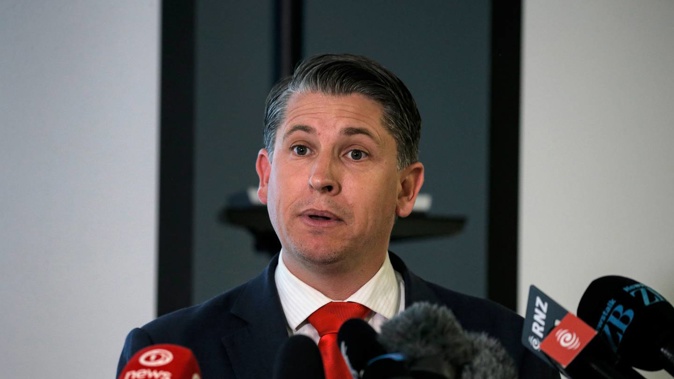
The Government has released its decisions on how unions and employers would interact to set fair pay agreements, which would represent the biggest shift in industrial relations since the early 1990s.
A key manifesto pledge of the Labour Party in 2017, the agreements would aim to standardise and improve terms and conditions across entire industries or occupations. Labour says the agreements have "significant similarities" to Australia's modern awards system.
As well as representing a step towards collective bargaining - which was largely swept aside with the passing of the Employment Contracts Act in 1991 - the agreements would give a structural importance to the union movement, putting it at the centre of negotiations even in occupations where union coverage is negligible.
"Fair Pay Agreements will improve wages and conditions for employees, encourage businesses to invest in training, as well as level the playing field so that good employers don't get undercut and disadvantaged," Workplace Relations Minister Michael Wood said.
"For too long New Zealanders working in critical roles like cleaners, supermarket workers, and bus drivers whose work was essential to keep our country going during the pandemic, have been undervalued by our workplace relations system. Fair Pay Agreements are about turning that around and ensuring that working Kiwis get a fair go again."
BusinessNZ chief executive Kirk Hope said the Government should not progress the agreements until more work was done. Photo / Michael Craig
Progress towards the agreements has been difficult, with fierce opposition from employers groups.
BusinessNZ reiterated its opposition to the agreements today, claiming key policy decisions were still to be made.
The Council of Trade Unions (CTU), meanwhile, said the agreements "will provide a framework for fairness" for workers.
Friday's announcement, which comes more than two years after a working group report on the agreements was publicly released, sees the key recommendations of the working group accepted by Cabinet.
Cabinet has agreed that a fair pay agreement process could be triggered by any union that can demonstrate support from either 10 per cent or 1000 employees in the proposed industry or occupation.
The process could also be initiated via a public interest test, which would take into account the low pay or limited bargaining power or workers.
Once initiated, unions would represent workers in negotiations, while employers would choose who would represent them, although BusinessNZ is expected to represent many employer groups.
If the two sides fail in two attempts to ratify an agreement, (with a simple majority required on both sides), the Employment Relations Authority would make a binding determination.
While the ERA has effectively set terms and conditions for sectors in exceptional circumstances, it is extremely rare.
Cabinet appears to acknowledge that unions would struggle to properly represent workers without help. As part of its decisions, the Government is giving both the CTU and BusinessNZ $250,000 a year for three years. Bargaining sides may also receive a contribution of up to $50,000 towards bargaining in each negotiation.
While previously Labour has played down how many agreements would be struck, there appears to be nothing to prevent multiple negotiations being triggered once the agreements are in place.
Progress towards the agreements has been difficult. A working group headed by former National Party leader and Prime Minister Jim Bolger reported its findings at the end of 2018.
Early the following year, amid fierce pushback from employer groups, Prime Minister Jacinda Ardern said there would be no more than "one or two" of the agreements prior to the 2020 election.
However in late 2019, then Workplace Relations Minister Iain Lees-Galloway announced a further round of consultation, prompting National to claim the agreements had been "kicked for touch".
BusinessNZ has vocally opposed the plans. Chief executive Kirk Hope said the Government should not progress the plans yet.
"We know there are serious policy questions to answer and we hope the Government answers those before they push ahead with them," Hope said, adding that if the aim was to improve wages and conditions, there were other levers the Government could pull.
Questions remained over implementation, coverage, notification of employers and dispute resolution and ratification, Hope said.
"We're not resigned [to FPAs]. We don't like it and we don't want the Government to implement them until they've done more work."
CTU president Richard Wagstaff hailed Wood's announcement, saying the agreements would allow for minimum pay rates, penal rates and other conditions.
"Any sector or industry which has a fair pay agreement will now have a better base of employment conditions, and all employees will now require employment agreements that recognise these standards as a minimum," Wagstaff said.
"Fair pay agreements will improve the lives of many New Zealanders and their families by lifting the wages of some of our lowest paid.
Employment lawyers say FPAs would represent a major change, at least for some sectors, since National passed the Employment Contracts Act in 1991.
"This is the most significant change since then, which is intended to take back some of the ground lost over the last 30 years and give unions the backing and support they need to effect real change in terms and conditions," Susan Hornsby-Geluk, a partner at Wellington employment law firm Dundas Street, said.
"Many employers who currently have no involvement at all with unions will be forced to participate in this new bargaining framework and engage with unions for fair pay agreements."
While the agreements put unions at the heart of negotiations, it was not certain this would solve the issues of declining membership. With unions representing only around 15 per cent of workers in New Zealand, there was a risk that non-members could freeload off the efforts of the unions, Hornsby-Geluk said.
"Whether this actually supports unions or undermines the need for workers to be union members is going to be an interesting thing."
Take your Radio, Podcasts and Music with you









